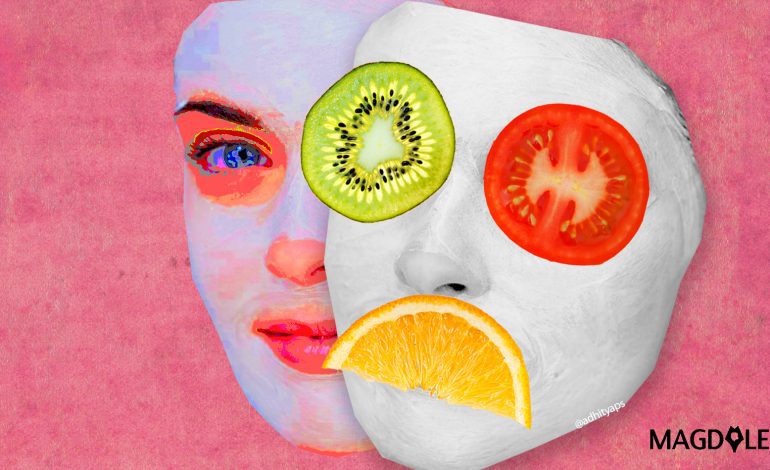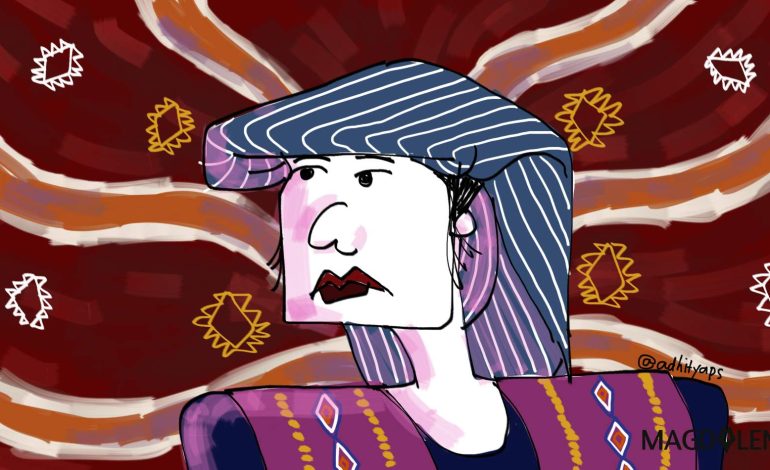‘Everyone Is Beautiful’: A Necessary Campaign

Nowadays, we are surrounded with “everyone is beautiful” campaigns. We see it in almost every beauty brand’s advertisement, from anti-hair fall shampoo to face moisturizer. One writer argued that such campaign sends confusing messages, while some people see it as a necessary movement. I stand with the latter, because to me, “everyone is beautiful” campaign is nothing but empowering.
How does the campaign empower people? I will try to answer that question based on my experience as a beauty editor in a digital media company.
I write, talk, research, discuss and argue about beauty topics on a daily basis. My job requires me not only to write about the latest beauty products, but also to look further into the beauty industry itself. Beauty industry, which is often seen by many as a terrifying, manipulating, and money-consuming world, is a very rich playground to me. I love to see how trend shifts, how people express themselves through makeup, and, especially, how beauty standard is evolving throughout the years.
Today beauty brands’ consumers are more drawn into social media influencers than their supermodel or celebrity ambassadors. Consumers buy a particular mascara because their favorite influencer says it’s good. They don’t buy it because of the glamorous ads featuring Gigi Hadid on a sleek magazine page. They listen to the influencers. Why? Because influencers are relatable.
These influencers might be college students in the morning and glamorous beauty guru in the evening. They can also be a full-time mom or a bank employee. More importantly, they come in all shapes and sizes, representing the idea that everyone, literally, can be beautiful in their own ways.
Instead of sending conflicting messages because it “normalizes beauty,” the opposite is true for me. The writer argues that saying everyone is beautiful implies that once everyone has it, beauty is no longer special because it has lost its role as a differentiator. But can we say Tari Bali (Balinese dance) is more beautiful than the Minangkabau’s Tari Piring? Can we conclude that batik Pekalongan’s pattern is prettier than batik Mega Mendung? Of course not. They offer different kinds of beauty, because beauty is not something that you can measure.
I believe that beauty is something that everyone has always desired. Not in a way of “I have to try to look like Dian Sastro or I’m going to be depressed for eternity,” but in a way that when we wake up in the morning, we like what we see in the mirror. For some people, that kind of satisfaction is enough to motivate them in the morning.
However, we live in a country in which online shops selling illegal whitening cream with God-knows-what ingredients have thousands of followers on Instagram. This is just another reason why we need to emphasize the notion that everyone is beautiful. Young girls feel ugly because they don’t have fair skin like their favorite soap-opera actresses. The solution? Buy illegal whitening creams on Instagram! Yay! Long term risks and skin cancer? Who cares!
There is a difference between an obsession to be beautiful and trying to find beauty in everything. I do think that everyone must feel beautiful. If people feel beautiful, they are comfortable with themselves. If they are comfortable, they are confident. I don’t want to stand in front of a mirror and say “I might be ugly, but I’m going to nail the presentation at today’s meeting.” Why can’t I say, “My hair looks on point today and it makes me feel like Wonder Woman. I’m totally going to rock my presentation.”
My beauty standard can be different from your beauty standard. My neighbor’s beauty standard can be different from Victoria’s Secret’s beauty standard. That’s where the “everyone is beautiful” campaign steps in: we create our own beauty standard.
Being “realistic” does not mean that we have to “accept” that we are not beautiful. If we consider ourselves ugly, that means we already lost and surrender ourselves to other people’s beauty standard. If I don’t have the greatest skin, then why can’t I feel good about my gorgeous eyes? If I don’t really like my sparse eyebrows, then why can’t I love my sharp cheekbones? Nobody is perfect anyway, but I don’t support the idea of calling ourselves ugly either. I don’t even know whose criteria of beauty that I have to fulfill but my own. Are we really going to go about our day with this kind of bitterness for the rest of our lives?
I also can see why the “everyone is beautiful” approach is glorified in beauty products’ advertisement. One thing to remember is that they are a very big industry. They have to sell a product, make money and grab as many consumers as they can. If they can sell a product while also promoting an optimistic approach to beauty that caters to everyone, then I’m not protesting. Beauty industry have come a long way since only skinny white girls with blue eyes are considered as the definition of beauty. I’m also confused by the contradiction: if beauty brands are criticized for promoting specific criteria of beauty standard, then why are we objecting if they say that beauty is for everyone?
In addition, I believe that promoting everyone can be beautiful also has its own cultural values. The Ultra HD Foundation by French cosmetic brand MAKE UP FOR EVER has 40 foundation shades that suit every skin color, as pale as Mia Wasikowska to deep-toned Lupita Nyong’o. I think this sends a very encouraging message to every dark-skinned girl out there, who may be tired of being told they’re not beautiful all their lives, that they, too, are beautiful. More importantly, they are represented. We don’t have to “pursue” beauty or anything, because beauty is something that we are born with. We already have it.
For me, “everyone is beautiful” campaign frees us from all the rules set by society. It lets us feel beautiful regardless how twisted other people’s beauty standards are. Again, I don’t need to meet your expectations of beauty and you don’t need to meet mine. But that does not mean that a person has to say “Go home, you’re drunk” every time he or she wants to feel beautiful, because of some random standard that might classify them as ugly.
Saying that people who are not beautiful should try to be something else (either smart, kind, funny, etc.) suggests that beauty is some kind of a VIP lounge that not everyone has the entry ticket. In a way, it would create unnecessary boundaries between people. If everyone can be smart and funny, then can’t everyone be beautiful? Better yet, why can’t we be beautiful, smart, and funny?
The way I see it, people are very cynical about beauty standard yet they never leave it alone. I’ve never heard people protesting Bill Gates or Stephen Hawking because they set an “unrealistic goals of intelligence.” I’ve never seen people criticizing Bruno Mars or Beyonce for their “unrealistic musical talent.” Other people can be the best version of themselves and we can do that too. Certainly not by saying, “I’m ugly but that’s totally okay,” but more like “I’m the coolest person I know and my own standards are the only ones that I have to follow.” I think that sends a better message rather than driving ourselves into a negative sentiment that is more discouraging than motivating.
Of course beauty is not the only thing that matters, just like everything else. You can be the smartest person in the room, but likes to interrupt when other people are talking. You can be funnier than Kevin Hart, but still makes sexist jokes at a dinner party. You can be the most generous person in your neighborhood, but you only want to donate to an orphanage where the kids have the same religion as you. In the end, no one thing is more important than the other, because it’s all about balance.
So I’m going to keep repeating that “everyone is beautiful” like a broken record. I want to live in a world where people can feel beautiful based on their own standards and not limiting themselves to try and have fun with their physical appearance.
Telling everyone they are beautiful may sound cliché, but, to me, it makes a meaningful sense if we see it in a whole new state of mind. If feeling beautiful can give you strength and power, then, by all means, do anything you want to achieve it.
Nadila Dara is a beauty editor at femaledaily.com.
Tells us where you stand on this issue in the comment section below. Or, better yet, send your longer thoughts to [email protected] Re: Your Feedback – Beautiful






















